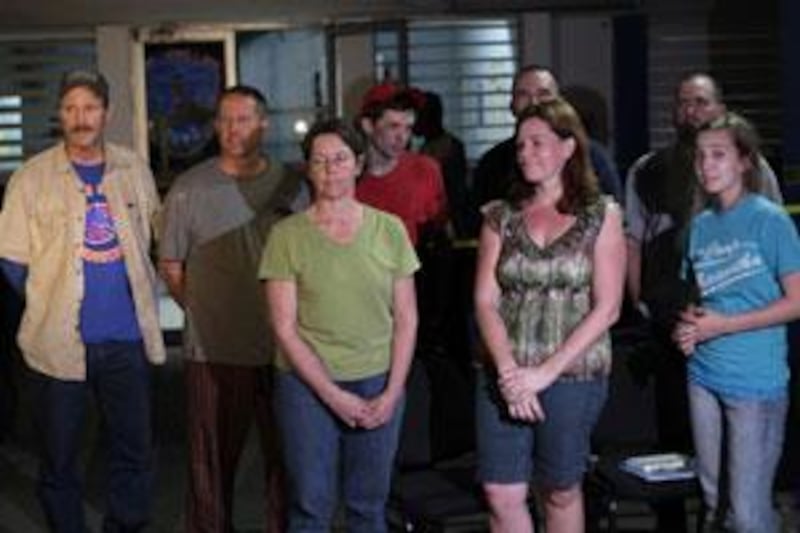PORT-AU-PRINCE // Ten US Baptist missionaries were charged with kidnapping yesterday for trying to take 33 children out of Haiti to a hastily arranged refuge. The Haitian lawyer who represents the 10 Americans portrayed nine of his clients as innocents caught up in a scheme they did not understand. But the lawyer, Edwin Coq, did not defend the actions of the group leader, Laura Silsby, though he continued to represent her. "I'm going to do everything I can to get the nine out. They were naive. They had no idea what was going on and they did not know that they needed official papers to cross the border," Mr Coq said. "But Silsby did." Family members of the Americans released a statement late yesterday saying they were concerned about their relatives being jailed in a foreign country. "Obviously, we do not know details about what happened and didn't happen on this mission," the statement said. "However, we are absolutely convinced that those who were recruited to join this mission travelled to Haiti to help, not hurt, these children." The Americans, most members of two Idaho churches, said they were rescuing abandoned children and orphans. But at least two-thirds of the children, who range in age from two to 12, have parents who gave them away because they said the Americans promised the children a better life. The investigating judge, who interviewed the missionaries on Tuesday and Wednesday, found sufficient evidence to charge them for trying to take the children across the border into the Dominican Republic without documentation, Mr Coq said. Each was charged with one count of kidnapping, which carries a sentence of five to 15 years in prison, and one of criminal association, punishable by three to nine years. Mr Coq said the case would be assigned a judge and a verdict could take three months.
* AP






